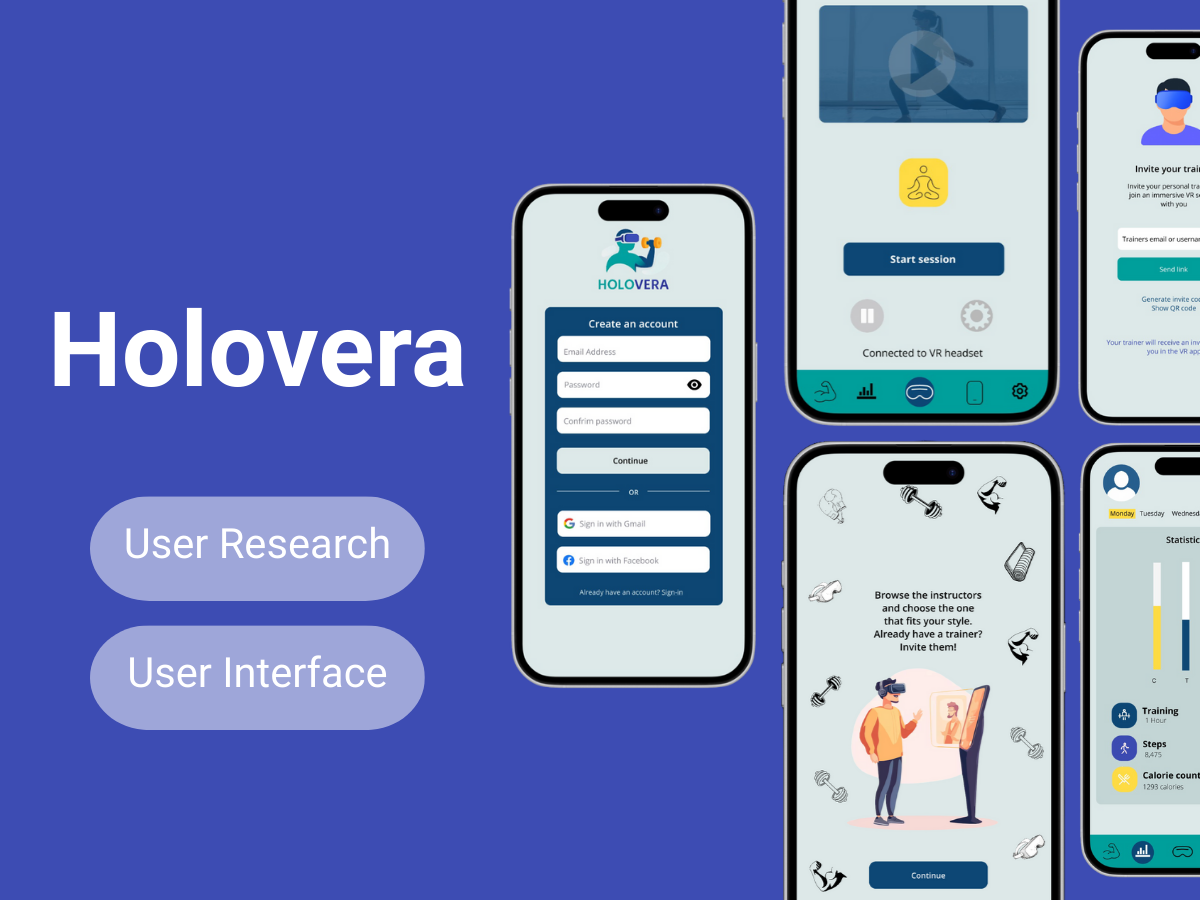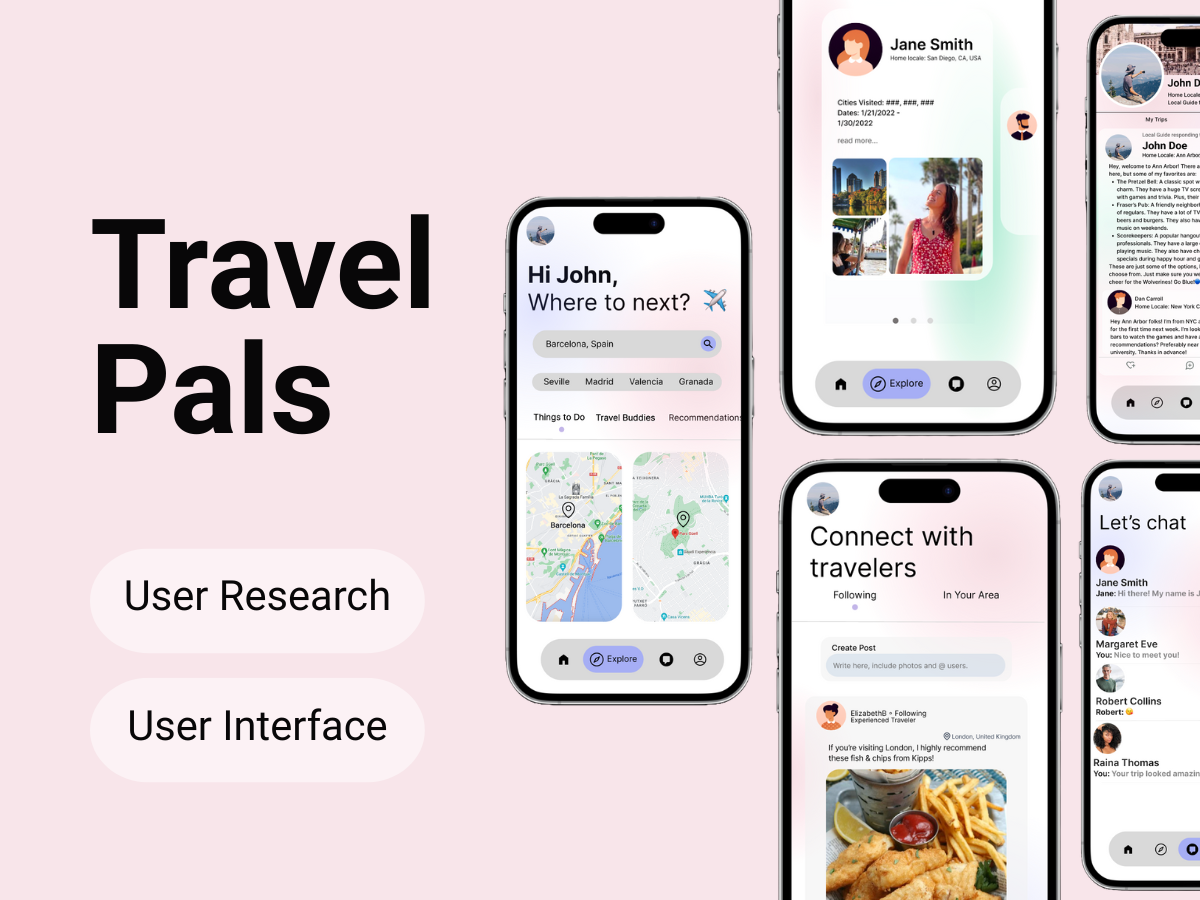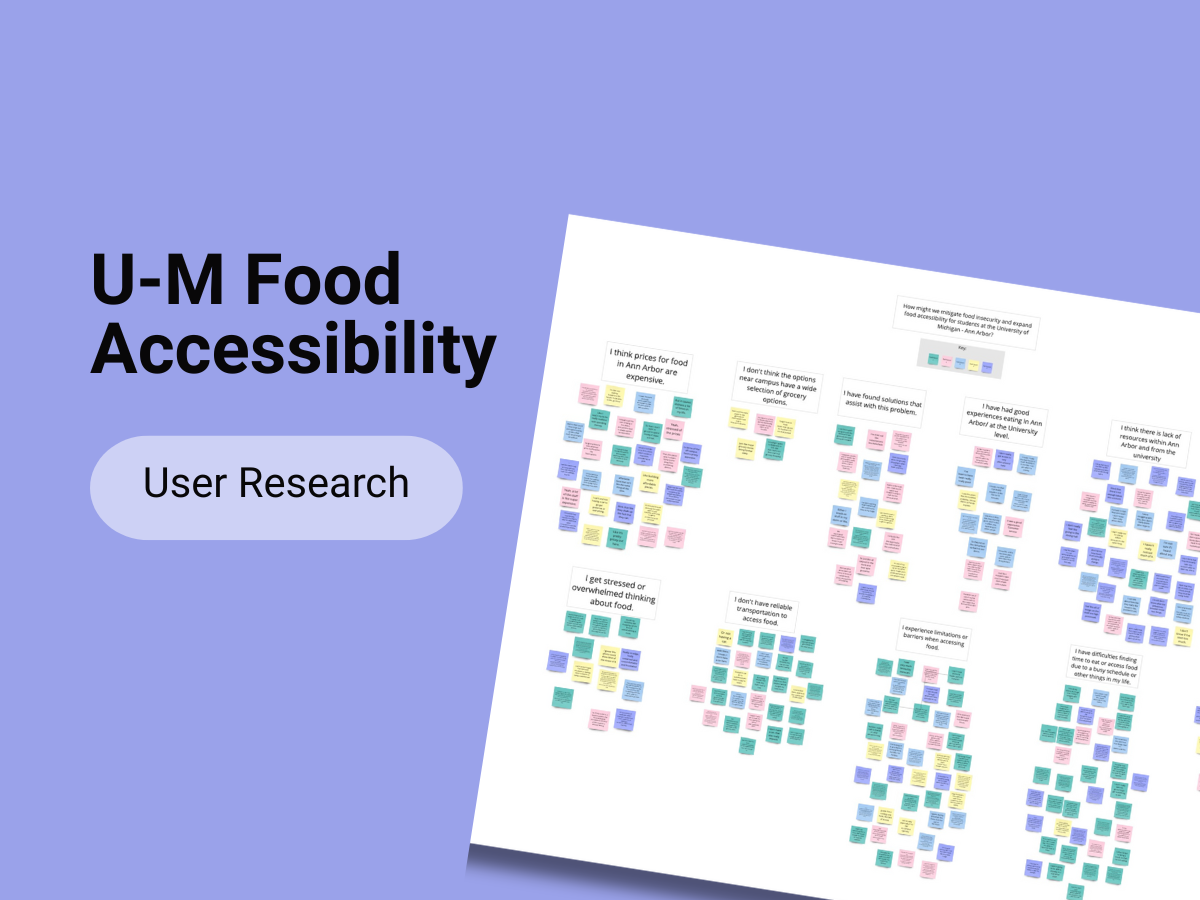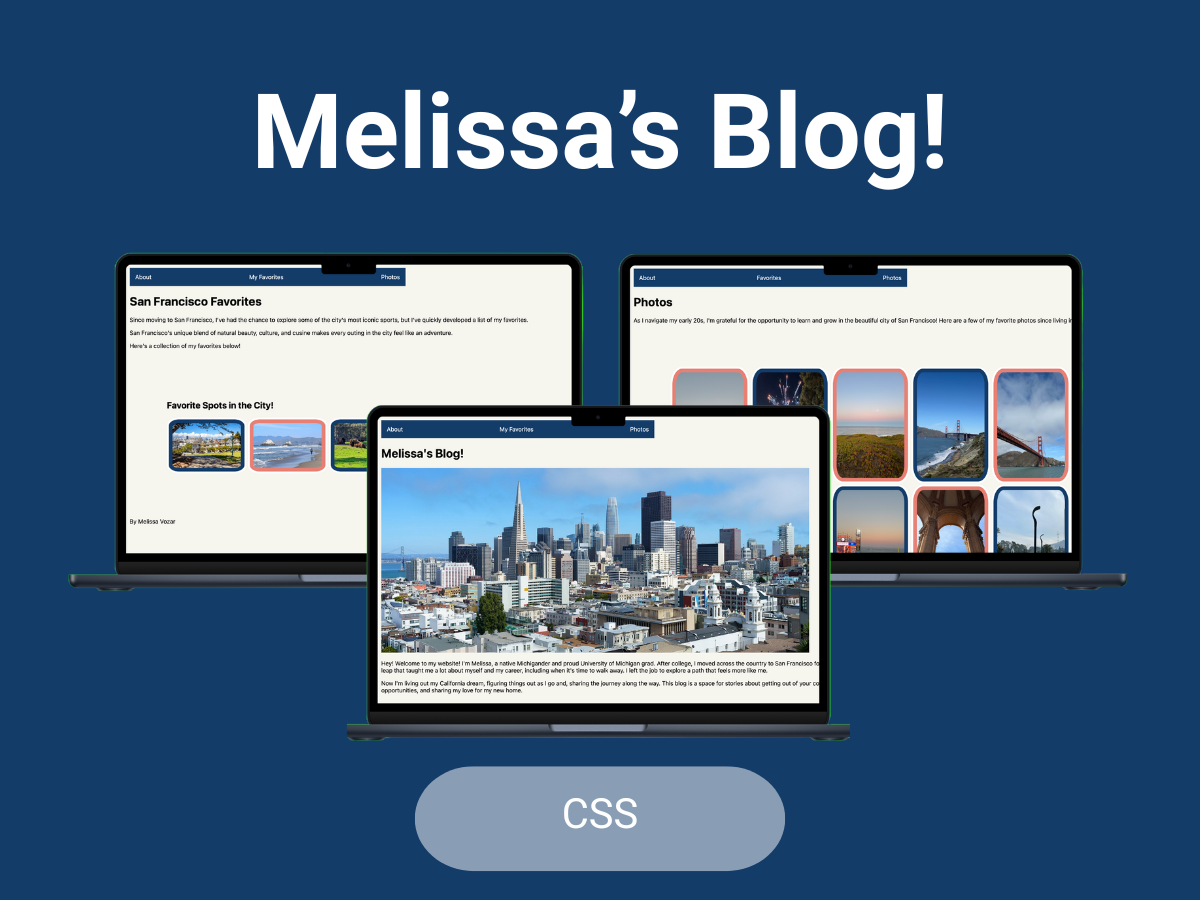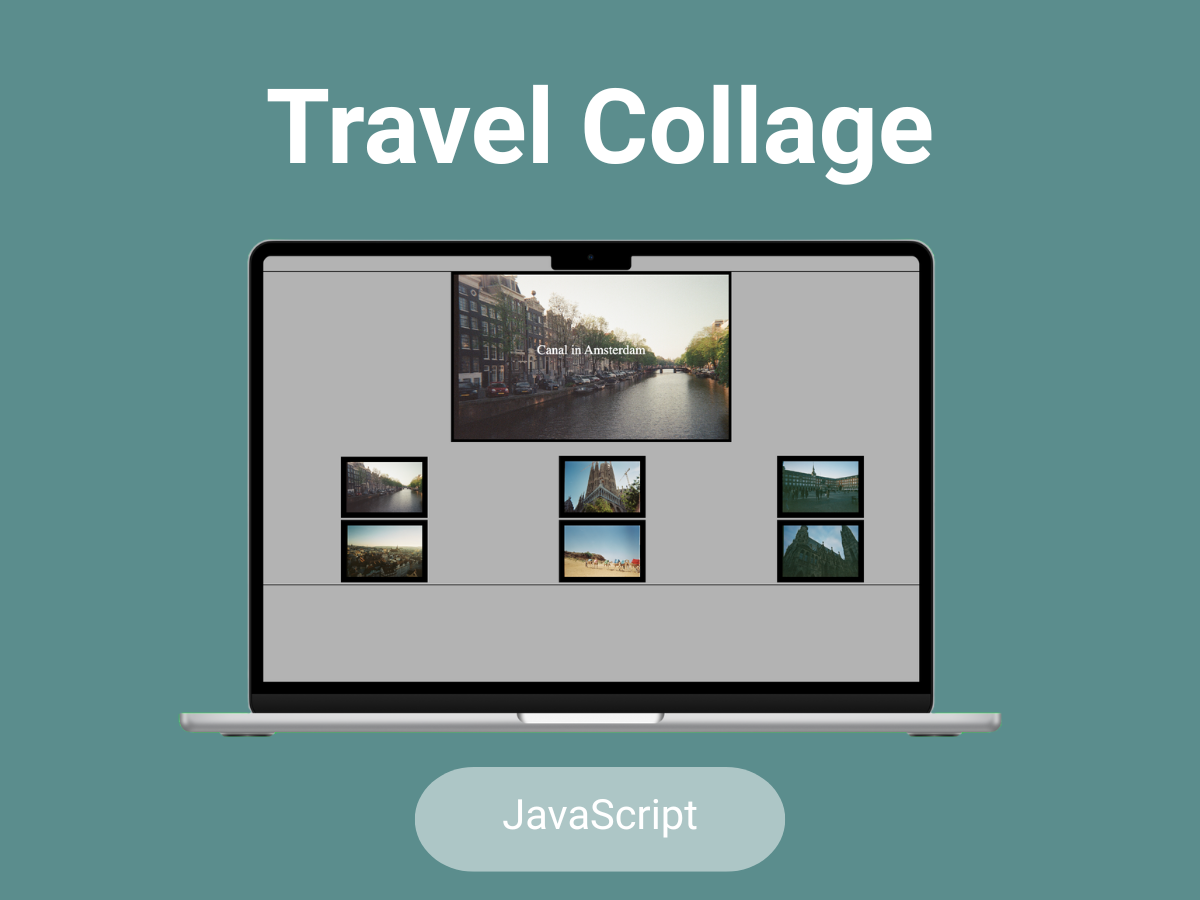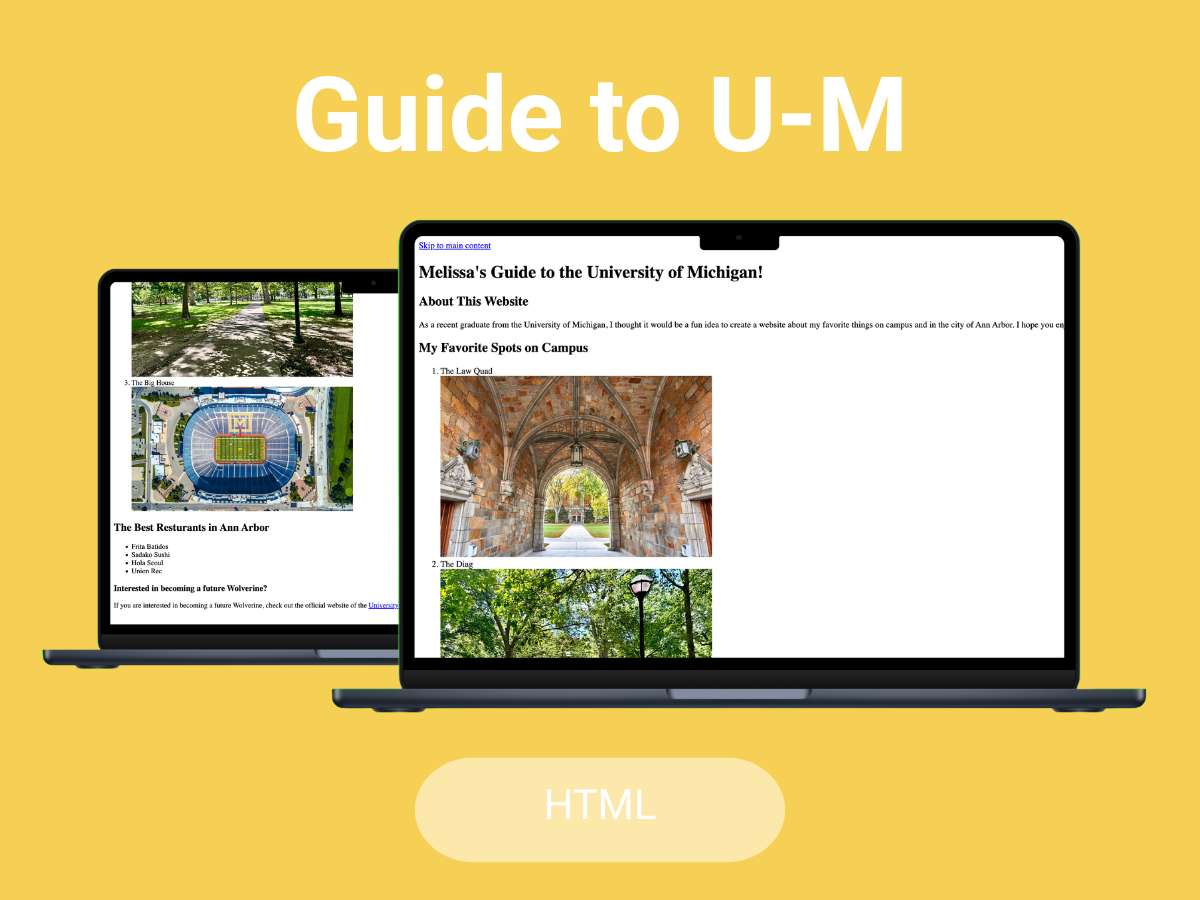
MFeed
“Fuel good, feel good”
Team
Melissa Vozar
Aishani Chatterjee
Cooper Silhanek
Ella Liu
Timeline
December 2022
Tools
Figma
Overview
MFeed is an information product that offers an open source database to compile accessible food options on and around campus.
Background
In my course SI 110: Introduction to Information Studies under Dr. Cliff Lampe, I gained foundational knowledge about the role of information in society, exploring its theoretical, cultural, and practical dimensions—from how humans construct meaning to the impact of digital technologies and the basics of computing and networks. It served as a gateway to understanding the culture, politics, and economics of the Information Age.
As part of the course, my team identified a real-world problem affecting a local community and designed an information product (e.g., website, app, or dashboard) to address it. The project combined principles of UX Design and Information Analysis, applying classroom concepts to create meaningful, user-centered solutions.
Problem
Students are familiarized with food ordering and delivery services but there are few resources on where to access food, especially on a low-budget typical to college students.
Target Community
The target audience of our information product is students at the University of Michigan.
Age Demographics:
The mean age of all U-M students: 23 years old
The mean age for undergraduate students: 20 years old
The mean age of graduate students: 27 years old
Typically, after the first year the students within this community are reliant on accessing food and cooking meals on their own.
Students are familiar with technology.
User Persona
Mockups
Resturants Page
Will allow the user to interact with the various options nearby.
Contains:
Map feature
Price options ($$$$)
Dietary restrictions
Menu items are directly in app
Comparison feature (ex. Search Burrito)
Pancheros- $8.45+
Btb- $8.75+
Cantina- $11.00+
Groceries
Allows the user to easily search for the product they’re looking for
Helps them find their product in the database of the Maize and Blue Cupboard (free produce resource provided by the university)
Filters for Cheapness, Closeness and Popularity of options helps provide a customized list of grocery stores
Map feature allows the user to visualize different options
Possibly include shipt options, grocery delivery?
Free Food Page
The Free Food Page will allow the users to easily view events on campus where free food is available
A scrollable list of events which clearly shows the LOCATION and TIME of the event will help users browse through and find events that they can conveniently attend for free food.
Restaurant and Grocery Data Collection and Analysis
Utilize Google Maps API to create a map of local grocery stores and restaurants
Categorize by potential accommodations (gluten free options, vegan, allergy safe, etc.)
Allow users to select their preferences and only see locations with noted tags
Identify the lowest price and most popular items and display for users
Include link to different store/restaurant stock and items
Collect user feedback on quality and price of locations
Free Food Data Collection and Analysis
Run a daily script over University of Michigan’s event calendar to identify upcoming events.
Filter for events that include free food, and upload necessary information onto event calendar.
Automated User Rating System
1) Prompt users for location ratings after marking on their map
General rating will be out of 5 stars and will serve as a general indication of quality and experience of the visited location, while cost is rated out of 5 dollar signs (cheap to costly).
2) Collect total ratings to determine most popular locations
By averaging all ratings made by users, certain locations can be marked as “most popular” on the internal map, making it stand out visually.
3) Promote most popular locations to other users
By determining which locations are marked as most satisfying, there is less pressure put on individuals to decide where to go when a trustworthy source is given.
Conclusion
Through MFeed we hope to aid Michigan students in finding inexpensive food resources:
Restaurant affordability and dietary options
Grocery locations, affordability, and popularity
Free food events on or around campus
The app will utilize daily updates taken from Google maps, restaurant sites, and UofM’s event calendar to provide up-to-date resources and price comparisons.
Case Study Slides
Check out more of my work!






